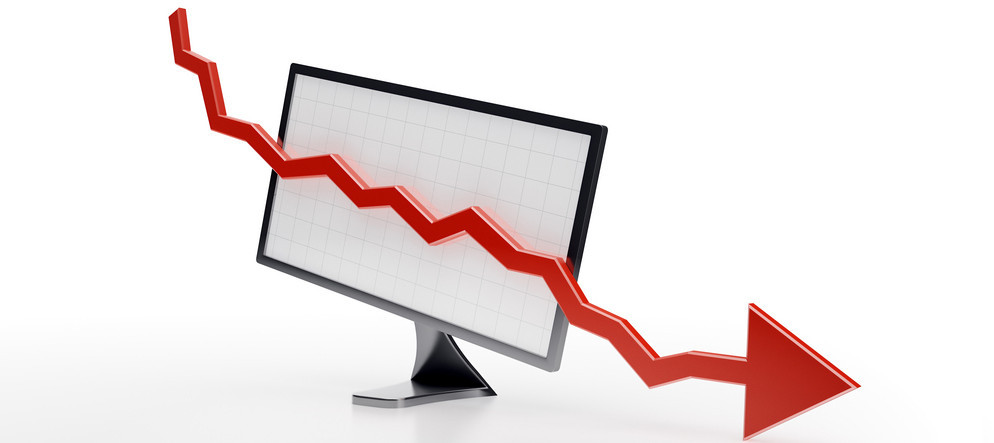Why Has My Website Traffic Gone Down?
Are you alarmed by the abrupt decline in website traffic you’ve seen over the last few days? Do your Google Search Console (GSC) and Analytics statistics seem to be lagging?
Don’t panic just yet! Your website traffic may have decreased for a number of causes, and we can assist you with troubleshooting. We have put together a list of the most typical reasons for decreased website traffic, ranging from technical issues to changes in user behavior.
So, take a deep breath, and let’s dive into the possible reasons behind your traffic decline.
Top 10 Reasons for Declining Website Traffic.
1. Googles Search Engine Algorithms: a recent change to the search algorithm. Google frequently modifies its search algorithm, which can occasionally cause a sharp decline in website traffic. It’s worth checking Google’s Webmaster Central blog if you’ve recently noticed a decline in traffic to see if any algorithm modifications might be hurting your site. A website’s organic traffic and search rankings may suffer if its content or SEO tactics are out of date with the most recent search engine algorithms.
2. Penalties or technical problems: If Google has penalized your website, this may also cause a decline in visitors. Google can penalize websites for a variety of reasons, such as duplicate content, spammy links, or low-quality content. You can examine Google’s Search Console to see if there are any issues or warnings that could cause the problem if you believe your site may have been penalized. And broken links, slow page loading times, or a non-mobile responsive design can all cause readers to abandon a website.
3. Poorly Witten Content: If a website’s content is poorly written, outdated, or irrelevant to its target audience, readers are unlikely to engage with it. This can result in drops in rankings and a decrease in traffic. In fact, a dip in your website’s ranking in search results can be one of the main reasons for declining readership. Your website’s ranking can be impacted by various elements, including the quality of your content, the number of backlinks you have, and the keywords you’re focusing on. Therefore, it’s important to regularly update your website with fresh, high-quality content that is relevant to your target audience and optimized for search engines. By doing so, you can improve your website’s ranking and attract more readers to your site.
4. Lack of Social Media Promotion.The number of readers a website draws might be significantly impacted by a lack of social media promotion. A potent tool for promoting your content and interacting with your audience is provided by social media platforms. Without a solid social media strategy, it may be difficult for your website to draw in new visitors and keep hold of current ones. You may boost the visibility of your website and draw in more visitors by sharing your material on social media and interacting with your followers. Additionally, using email marketing and other promotional channels can help you get in front of more people and gradually develop a readership that is devoted to you. To ensure that your website is operating to its greatest capacity, it is crucial to promote your content via social media.
5. Competition. A decrease in traffic may be caused by your website being less informative and interesting than other websites. Ensure that visitors to your website can’t discover something similar elsewhere. Offer distinctive, high-quality content and a unique user experience to set your website apart. And stay up-to-date with changes in user behavior and adapt your website and content strategy accordingly.
6. Negative comments or feedback: Negative comments or feedback from readers can damage the reputation of a website and deter potential visitors. You must reply right away: As soon as you can, respond to critical comments or feedback to demonstrate that you value your readers’ concerns.
- Be professional: Even if the review is negative or severe, you should still respond in a polite and professional manner.
- Recognize the problem: Express concern for the reader and regret any inconvenience that may have occurred.
- Offer a remedy: If at all possible, suggest a remedy for the problem.
- Take it offline: If the problem is complicated or delicate, you might want to consider having a private discussion about it.
- Consider negative criticism as an opportunity to grow and learn.
7. Updates to social media algorithms: Modifications to social media algorithms may affect a website’s social media postings’ visibility and diminish its social media presence.
8. Changes to the design or content. Visitors may be leaving your website sooner if you’ve recently made changes to the content or appearance. Make sure your design is user-friendly, and that your content is still fascinating and relevant.
9. Failure to respond to user complaints or feedback: If a website doesn’t address user complaints or feedback, readers may stop coming back.
10. Increased competition in the market or niche: A website’s ability to retain users may be hampered by increased competition from other websites or platforms that offer comparable material.
Some solutions to these problems.
The most effective strategy to address each of the ten issues that can cause readership to decline will vary depending on the particular situation, but the following general advice should help:
Search engine algorithm updates: Keep abreast of the most recent search engine algorithm updates and modify your SEO approach as necessary.
Technical problems or website errors: Frequently check your website for problems, and make sure it loads quickly, is mobile-responsive, and is simple to use.
Content of poor quality or that is out of date: Update your website frequently with new, excellent content that is pertinent to your target audience.
Lack of marketing or promotion efforts: To attract a larger audience, advertise your website through social media, email marketing, and other means.
Obsolete or ineffective SEO techniques: Use modern SEO strategies and stay away from spammy or unethical approaches that could damage the reputation of your website.
Social media algorithm changes: Keep up with updates to social media algorithms and modify your plan as necessary. Also, be aware of the best times for posting. Read more on “Best times for Social Media Posting“
Heightened rivalry in the sector or market: Offer distinctive, high-quality content and a fantastic user experience to set your website apart.
Failure to adjust to modifications in user preferences or behavior: Keep abreast of modifications in user behavior and adjust your website and content strategy as necessary.
Neglecting user complaints or feedback. To foster loyalty and trust, invite reader comments and respond to issues quickly and professionally.
Unfavorable comments or reviews: Respond to unfavorable comments quickly and professionally, and use constructive criticism to improve your website.
A lot of the above points can be covered by you keeping up to date with what is happening in your niche. Sign up for journals or content by others in your niche and dedicate a few hours a week to reading the latest information and news affecting your market or niche.
Improving Website Performance
Final Thoughts
It can be upsetting to notice a decline in website visitors, but don’t worry—there’s always a cause for it, and it can generally be solved!
If there’s one thing you take away from this piece, it’s that a sudden drop could have a number of causes or could be the result of a single page.
Make sure to investigate all potential causes so that you can quickly identify the issue’s root cause and then take the appropriate course of action.

Some links on this site may be affiliate links, and if you purchase something through these links, I will make a commission on them. There will be no extra cost to you and, you could actually save money. Read our full affiliate disclosure here.

